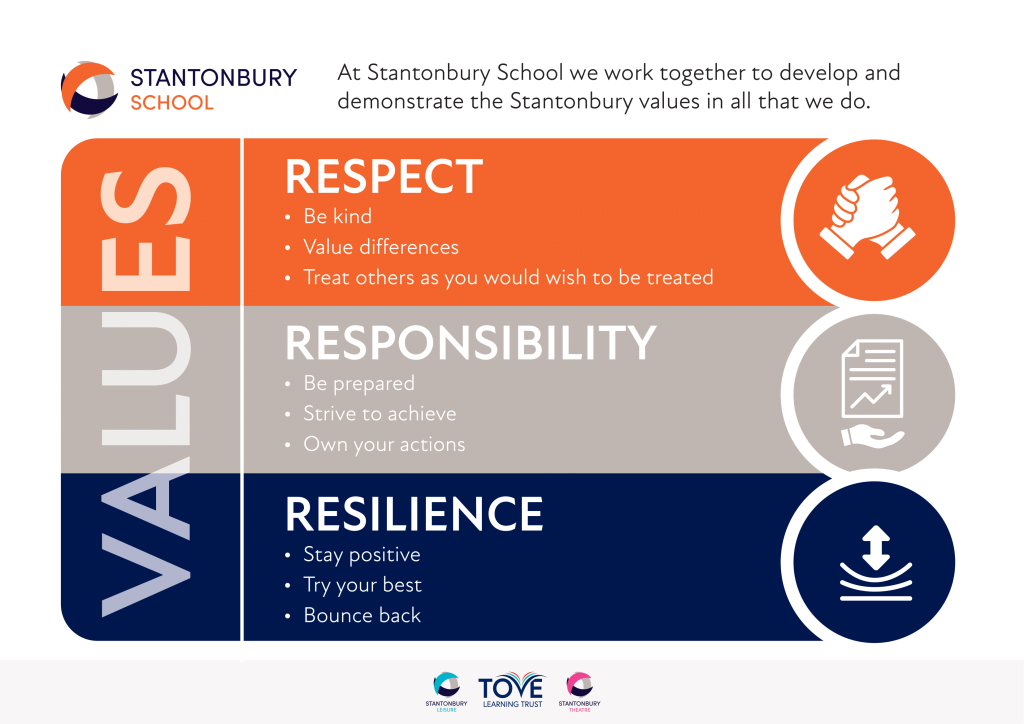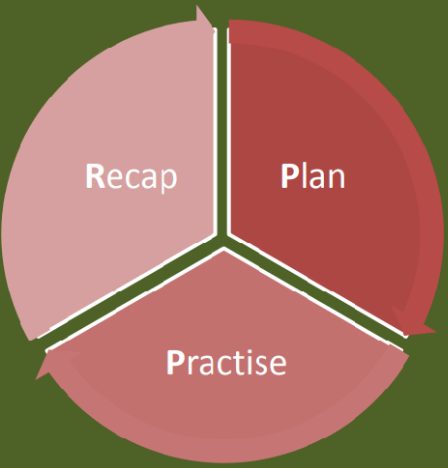Homework Policy
Work that students do at home is referred to as Homework at KS3 and KS4, and Independent Study at KS5.
Vision
Students are engaged in learning both within the classroom and at home, and aim to maximise their potential. Students are supported as they do this. The skills that students develop over the course of their time in school will help them later on in life.

Students regularly and diligently complete homework and independent study, demonstrating their commitment to the 3Rs.
Rationale and evidence
Why do we set homework?
- Setting homework and out of class revision activities gets students into good routines and helps to improve grades.
- Homework develops study habits and independent learning - British Council
- Homework has a positive impact on average (+ 5 months), particularly with pupils in secondary schools - EEF
- Pupils eligible for free school meals typically receive additional benefits from homework - EEF
Student Expectations
Students should check their Google Classrooms regularly, as this is where information about homework is posted by members of staff. This will include helpful information such as instructions for completing tasks and deadlines.
Tasks for homework could include, but are not limited to;
- Completing work on online platforms e.g. Seneca, Sparx, Bedrock
- Reading notes from lessons
- Completing quizzes, questions or longer written writing tasks
- Completing research
- Creating and using revision material e.g. flash cards, mind maps
- Reading ahead for the next lesson or learning content in advance (also referred to as “flipped learning”
- Independent projects completed over a longer period of time
- Research and knowledge retrieval: this may take the form of students finding certain information prior to beginning a topic, or to consolidate and enhance in class knowledge
- Acting on feedback from class work
- Doing exam questions or papers
- Learning spellings and key vocabulary
- Practical projects
Should it be the case that homework is not explicitly set, the default for homework tasks should be completing work on online platforms. Bedrock should be the initial platform used at KS3, however KS3 students should also be accessing Sparx and Seneca. KS4 and KS5 students should prioritise use of Seneca and Sparx, and for a number of subjects students have access to other platforms such as GCSE Pod.
Students may also find it beneficial to use a cycle such as the one below:

Recap - your knowledge and skills learnt in lessons.
Plan - what is your follow up learning? What can you understand better by carrying out further research or practise? What do you need to revise?
Practise - Complete work such as learning key terms, answering questions or using online platforms.
Student workload considerations
We do not expect students to work for long hours every day after school. We understand that it is necessary for students to have regular breaks from study, and we want to encourage students to use some of their time for other extra-curricular activities. Below are suggested homework durations for students in each key stage, however these are not tailored to the needs and commitments of individual students. These values are total time spent, not per subject.
- In years 7 and 8 – 45 to 90 minutes of homework per day
- In year 9 – one to two hours per day
- In years 10 and 11 – 1.5 to 2.5 hours per day
- In Sixth Form - students should complete one hour of independent study for every hour in the classroom. This may not necessarily be directed by the teacher, as sixth form students should be completing reading and researching tasks of their own accord.
The level of homework gradually increases and incorporates revision for exams.
Examples of timetables: EXAMPLE TIMETABLES
Suggested steps on how to create a homework or revision timetable: Building a revision timetable.pptx
Student homework expectations charter: Homework Charter.pptx
Homework Knowledge Organiser for display in teaching rooms: Homework Knowledge Organiser.pptx
Guidelines per subject
KS3
Core - set weekly
Non-core (except PE and PSHE) - set fortnightly
KS4
Weekly - all subjects
KS5
For every period inside the classroom a period outside of independent study to complete. This could include work on NEAs, as directed by staff.
For all key stages:
Core PE and PSHE - not fortnightly homework, however information still shared through Google Classroom
Parent Expectations
Please read and refer to the information below as queries may come up from time to time, and if you would like further clarification please contact your child’s subject teacher or Head of Faculty in the first instance.
Students should take responsibility for their homework, and should be encouraged to regularly check any platforms such as Google Classroom. You should be able to check your child’s homework tasks on Google Classroom.
The support students receive at home can be very beneficial in their progress. However, too much help can mean students aren’t developing independence, and teachers will find it difficult to accurately gauge the child’s progress if the work is not their own. On the other hand, too little can mean work is rushed, incomplete or ill thought through. Below you’ll find some suggestions on how to support your child with their school work. Obviously, this is dependent upon various factors including their age and level of independence:
- Encourage your child to work somewhere suitable if possible - free of distractions and a quieter area of the home if possible.
- Check your child’s homework schedule, perhaps transferring deadlines to a shared notice board, or putting reminders on your phone to check that it’s been done on time.
- Remind them to pack their bag the night before school, to ensure all homework is not
forgotten. - Get them to explain their homework to you before they start. Ask them about checklists for success to ensure they do everything required.
- Get them to plan out how they will approach the homework before they start.
- Check in with the student mid-way through to ensure they are on track.
- Remind them of the importance of using a range of sources for revision, including library research and the internet.
- Ask them to consider their targets from previous home and class work before they start.
- Ask them to teach you something they have covered in class, a powerful tool when revising content.
If your child seems to be spending a long time on homework it may be that they are struggling or losing concentration. If this is the case they may need a bit of help to have a break and refocus. If you are becoming increasingly concerned, you can contact your child’s tutor or subject teachers with any queries.
Support from the school
To support students with their studies, including homework, we offer a variety of support. Examples include;
- Tutor time sessions - there are daily opportunities for students to speak to tutors about homework concerns. Students should speak to their subject teachers directly about subject specific queries.
- Study Club - this is held on a Tuesday and Thursday after school in the Library. We understand that there may be some barriers to completing homework, such as limited access to ICT and the internet. “Homework clubs can help to overcome…barriers by offering pupils the resources and support needed to undertake homework or revision” (EEF).
- Seneca Premium - students at Stantonbury have access to Seneca Premium. This package offers a number of tools in addition to the free version of Seneca, enabling student students to make the most of the resources available to them.

